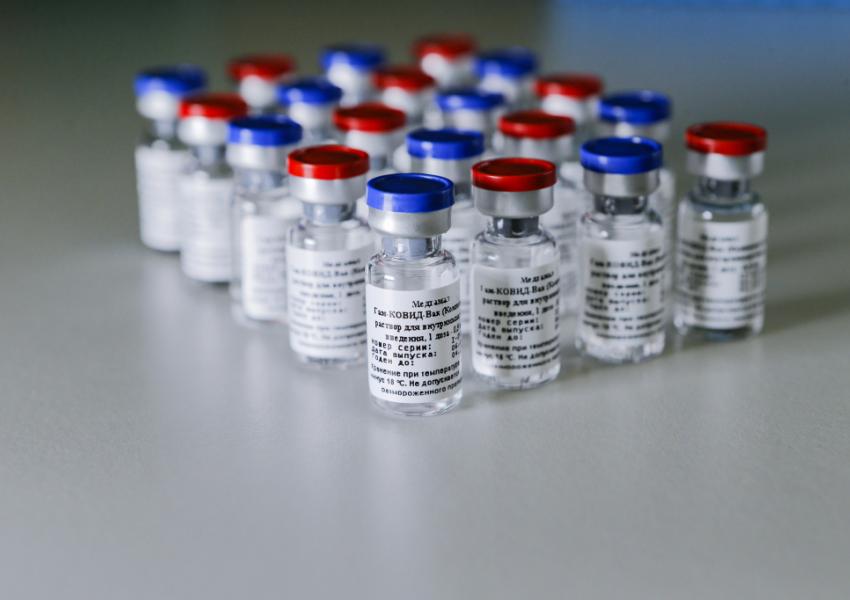
Iranian Health Professionals And Twitterati Reject Russian Covid Vaccine
“The ban on importing the vaccine from the United States and Britain but allowing the Russian vaccine reminds me of the Islamic Republic's foreign policy,” Yasin Ashrafi, a Twitter user said on Friday. “With your belief in fighting imperialism you could have given the country to communists who could [at least] manage it better than you.”
Ashrafi might have missed the demise of Russian communism 30 years ago, but Iran’s approval on January 25 of the Sputnik V Covid-19 vaccine has also been criticized by health professionals. While a million Russians have so far received the vaccine, and German Chancellor Angela Merkel this week expressed interest in producing it in Germany if approved by the European Union, Moscow’s announcement of Sputnik V, or Gam-COVID-Vac, in early August was met with media criticism and controversy among scientists.
Sputnik V has now been approved for use in countries including Russia, Argentina, Belarus, the United Arab Emirates, Serbia, and Iran. Hungary is the only member of the European Union to have ordered supplies. The Sputnik V vaccine has also been submitted for approval to the World Health Organization (WHO), which so far has recognized only Pfizer and AstraZeneca.
Some Iranian experts are scathing. “We must remember when the people of this country… sought the vaccine approved by world academic organizations to remain alive, our foreign minister who should be protecting our national interests was purchasing an unapproved vaccine from Russia,” Dr Bahram Parsaei, a physician and former parliament member, said in series of tweets on Friday.
“As a member of the medical community and an Iranian, I will not use this vaccine,” Parsaei said, alleging that the health minister Saeed Namaki was motivated by politics rather than public health.
Other medical professionals, including members of the National Coronavirus Taskforce, have condemned the Russian vaccine. Dr Minoo Mohraz, a member of the taskforce’s scientific committee and an infectious diseases specialist, said buying the Russian vaccine was the “Iranian people’s bad luck.”
On January 13 Mohraz told Jahan-e Sanat newspaper that she would refuse to take the Sputnik vaccine “because so far no [adequate] information has been published about it.” She argued that while Russia was “a European country” it had not sought the approval of European Union health bodies. The EU regulator, the European Medicines Agency, on Friday authorized the Oxford-AstraZeneca vaccine for use in EU member states, a month after it was endorsed by the United Kingdom.
Iran approved Sputnik V on January 25. Presidential chief of staff Mahmoud Vaezi said that 2 million doses would be imported in three stages before Iranian New Year on March 21. Foreign Minister Mohammad Javad Zarif had two days earlier in Moscow expressed Iran’s hope of importing the Sputnik V vaccine and starting joint production. Zarif confirmed that Tehran was also in talks with China and India over vaccines.
On Friday, Dr Kianoush Jahanpur, the spokesman of Iran’s Food and Drug Administration, said Iran might buy the Oxford-AstraZeneca vaccine from Russia or India. “Any vaccine that isn’t from the US or British origin will be considered equally [with others],” he said.
Jahanpur was following a ruling on January 8 by Iran’s Supreme Leader Ali Khamenei against United States and UK vaccines. The Oxford-AstraZeneca vaccine was developed jointly by Oxford University and AstraZeneca, a British-Swedish multinational pharmaceutical company headquartered in Cambridge, England. Since Khamenei announced his ban, Iranian health officials refer to the vaccine as “the AstraZeneca vaccine” or the “Swedish vaccine” to make clear their compliance with Khamenei’s wishes.









